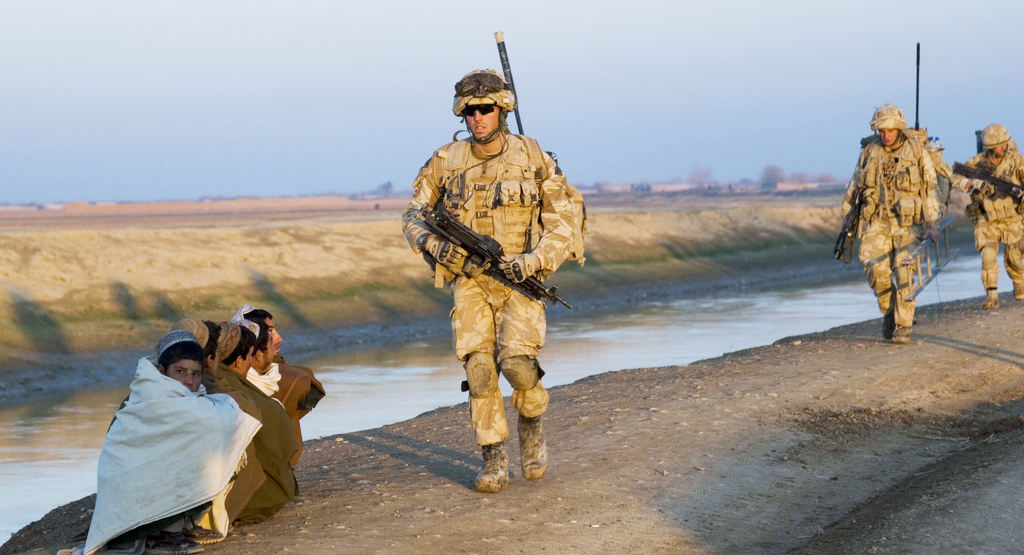Edinburgh, UK – 15 November 2012
By Fiona Pringle
Businesses take the hit as UK MoD rolls out new Army Reserves
The UK Ministry of Defence’s restructuring of the British Territorial Army (TA) into the “Army Reserves” is expected to place undue strain on businesses who employ reservists, as well as leave reservists under-funded as they step into more lengthy and more hazardous front line military commitments.
“This is absolutely defence on the cheap,” retired Army Colonel Bob Seddon told DefenceReport in response to Defence Secretary Philip Hammond’s statement to the House of Commons on 8 November. “The Secretary of State is not trying to make a better TA, but trying to bolster the regular force with a cheaper alternative.” The TA has seen a decline in numbers since the Strategic Defence Review in 1998, which reduced the size of the force from 56 thousand to approximately 40 thousand.
In its infancy, the Territorial Force was never intended to serve overseas. The word ‘territorial’ signified volunteers who served on homeland duties only, and when asked to deploy in the event of mobilisation in 1910, only 10 percent of the 269 thousand volunteers chose to do so. Nearly all of the 9,500 reservists called to deploy in support of Operation Telic in 2003 were from the TA. Since that time, the TA has provided some 1,200 fully trained soldiers a year to supplement regular forces in Afghanistan, Iraq and across the globe for six month deployment periods.
For many presently serving in the TA, the reforms, while costly, are “long overdue.” A serving TA infantry officer who commented to DefenceReport on the condition of anonymity said the TA today was “an under-resourced force.” “Reform of the TA has been overlooked and we’ve been making do, delivering blokes regardless of the conditions,” said the officer, who has over ten years of regular and reserve experience. “It is a shame that reform has come about because of defence cuts. It’s so long overdue.”
His comments remain anonymous due to his concerns of reprisal from senior officers. Currently, TA personnel must commit 27 days training per year and are paid on a daily basis. They are eligible for a bounty for meeting the yearly training commitment, which is a tax free sum of up to GBP 1,670 (USD 2,650). When deployed, personnel are paid at the same rates as their full time regular counterparts. Hammond has admitted that reservists’ obligations will increase.
Not only will the Army Reserves be expected to recruit up to a strength of 30 thousand, but reservists must accept a liability for deployments that would span six months, in addition to pre-deployment training, all within a five year period. According to the TA officer, increasing reservists’ commitment could have positive effects. “You can’t have a fighting force without high levels of commitment. The current level is laughably low. The main concern should be support for employers and detailed support for potential and current reservists.”
Leaning on business to float poorly funded Army Reserves
Hammond also said reservists will be expected to take part in almost every future military operation. This includes emergency relief requiring immediate response, a commitment that would leave civilian employers understaffed over long periods with little or no warning. For those potentially footing the bill for longer deployments, funding remains the key concern, and whether that funding comes from the government or from Britain’s businesses.
Sara Crane from the Federation of Small Businesses said that employers with less than 10 members of staff would find it difficult to cope with such changes. “In the current economic climate, small firms are struggling and so potentially losing one of their employees for a period of time could affect them,” said Crane. The MoD has declined to comment to DefenceReport about reservists’ exact terms of service. What is certain, however, is that the strain on small and medium enterprises will be considerable. “It is difficult for employers and there is a possibility of discrimination for you. It’s a square that’s difficult to circle.Although large firms can absorb the loss, it’s smaller employers that struggle and that is a real disincentive,” The TA officer told DefenceReport.
Spokesmen for SaBRE (Supporting Britain’s Reservists and Employers), the MoD-run campaign to encourage businesses to employ reservists, say they are gathering input from businesses on the proposal. The Future Reserves 2020 report, commissioned by Defence Secretary Hammond to investigate the main weaknesses of the Reserve Forces, suggests lack of adequate resources as being at the heart of the TA decline. “I agree with the philosophy behind a Reserve Force and wholeheartedly support the authors of the 2020 Reserve paper, but what needs to be fundamentally addressed is how we are going to bring a reserve force up to scratch in terms of their training and equipment,” said Seddon.
Although refusing to comment directly, the MoD has released information that they intend to bring kit and equipment for reserve forces completely in line with the Regulars. “There is not much cash and the GBP 1.8 billion (USD 2.9 billion) earmarked for equipment is already spent, so without the money being available, the Reserves will not get the training they need to do anything meaningful,” continued Seddon.
For Seddon, who was the Army’s top bomb disposal officer, focus on training is still a fundamental flaw in relying on any reserve force – especially one that will be required to take on more dangerous tasking. “A ‘just-in-time’ approach to training is dangerous. It takes eight years to fully train a bomb disposal expert and there is an assumption that you are able to train a reserve component in the same way that you train the Regulars. It is risky and dangerous and the Secretary of State for Defence is underplaying the risks. There seems to be a complete disconnect from reality,” said Seddon.
Feature photo / “British forces in Helmand” – Defence Images, Crown Copyright 2012


